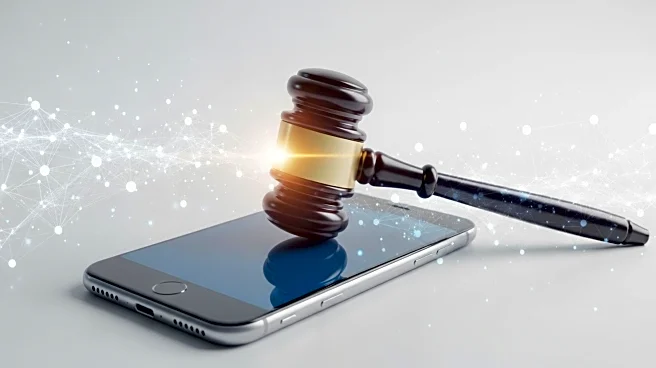What's Happening?
Senator Rand Paul has publicly criticized FCC Chairman Brendan Carr for his involvement in the suspension of Jimmy Kimmel's late-night show. Carr, appointed by President Trump, suggested that ABC should take action against Kimmel or face regulatory consequences, which has sparked bipartisan criticism. Kimmel's comments regarding Tyler Robinson, the suspect in the killing of conservative activist Charlie Kirk, were deemed false and led to backlash from conservative groups. ABC suspended Kimmel following Carr's remarks, raising concerns about government interference in broadcast content. Former Disney CEO Michael Eisner accused Carr of intimidation, while Senator Ted Cruz likened Carr's comments to mob tactics.
Why It's Important?
The controversy surrounding the FCC's involvement in media content raises significant concerns about freedom of speech and government overreach. The potential for regulatory action against broadcasters based on content critical of the administration could set a dangerous precedent, impacting media independence. This situation highlights the tension between political influence and media operations, with implications for how broadcasters manage content and respond to political pressure. The suspension of Kimmel's show underscores the delicate balance between corporate interests and editorial freedom, with potential repercussions for media companies and their affiliates.
What's Next?
Disney has not announced a timeline for Kimmel's return, indicating that the suspension could last several weeks. The decision will likely depend on the political fallout and concerns from ABC affiliates. Kimmel has not issued an apology or retraction, continuing to defend his comments on social media. The ongoing debate may prompt further discussions about the role of government in regulating broadcast content and the responsibilities of media companies in managing controversial statements. Stakeholders, including lawmakers and media executives, may continue to voice their opinions on the matter.
Beyond the Headlines
The incident raises broader questions about the ethical responsibilities of media figures and the impact of political affiliations on broadcast content. It also highlights the potential influence of advertisers and affiliates in shaping programming decisions. The situation may lead to increased scrutiny of the FCC's role in media regulation and the extent to which political considerations affect regulatory actions. Long-term implications could include shifts in how media companies navigate political pressures and the strategies they employ to maintain editorial independence.











